News
CBN plans tough sanctions for banks

By Francesca Hangeior
The Governor of the Central Bank of Nigeria, Olayemi Cardoso, has vowed to pursue an aggressive regulatory environment to reduce infractions in the country’s banking system.
He said this on Tuesday in Abuja at the Monetary Policy Committee meeting of the apex bank, the first since he assumed office in September 2023.
He also stated that an in-depth investigation was underway to determine the necessary actions against banks involved in infractions, stressing that the bank was in the process of formulating “stringent regulations” to cleanse and purify the country’s foreign exchange market.
The governor, responding to questions on steps taken to promote trading on the foreign exchange market, also revealed that its foreign reserves increased to $34bn as of February 20, up by $2bn from the $32.23bn recorded at the end of January.
The naira has depreciated to an all-time low since the new administration floated the currency and unified the exchange rate windows.
The Nigerian currency weakened from over N700/$1 in May 2023 to over N1,500/$1 on Tuesday.
However, Cardoso said that the apex bank was moving to a “very aggressive regulatory environment”, adding that the CBN would do all within its powers to curb arbitrage aided by banks and BDCs.
He said, “What we are doing at the moment is a collaboration between the central bank and the law enforcement agencies to ensure that we can understand better what is going on in the market and where infractions are taking place. They will be speedily dealt with.
“Now, I must say that we are moving as far as the central bank is concerned, we are moving to a very aggressive regulatory environment, where those policies have been coming out, as you can see, and tolerance for people not to abide by the regulations that are coming out and to comply is zero.
“People will have to abide by those regulations, and those that do not will face the consequences. I can assure you that a very thorough exercise is going on to identify what needs to be done on banks aiding infractions. And once we come out with the outcome of those, it is not something that we will keep to ourselves. We will advise you accordingly and we will do what we have to do.”
According to Cardoso, the apex bank would continue to make the market more liquid and to ensure that those who are genuine and want to abide by the rules and regulations that have been set by the central bank will be free to do so, adding that those who do not should be ready to face the consequences.
News
Former Plateau deputy governor is dead
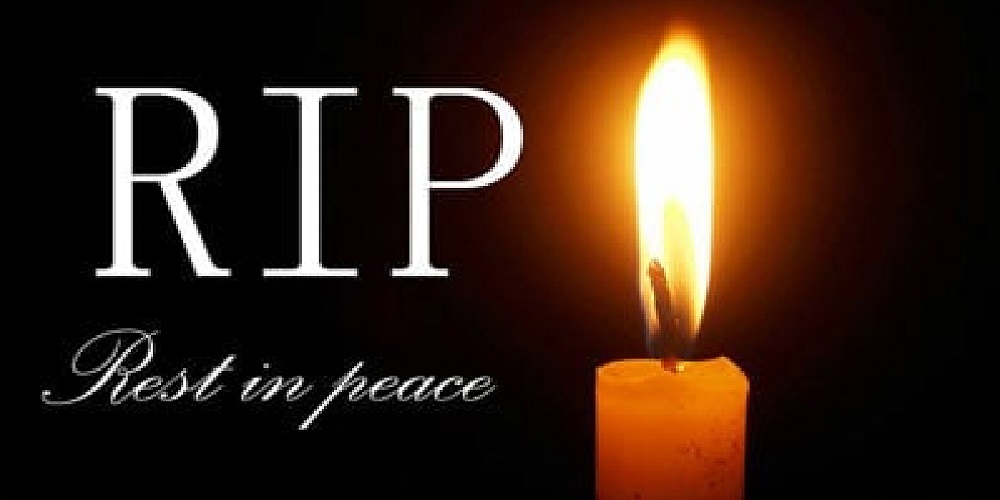
Former Plateau State Deputy Governor Professor Sonnie Gwanle Tyoden has died.
He passed away at the age of 74, though the cause of his death was not confirmed as at the time this report was filed.
Tyoden served as the deputy governor of Plateau State from 2015 to 2023, working under Governor Simon Lalong during the administration of the All Progressives Congress.
Before his time in government, he was the Vice Chancellor of the University of Jos, a role he held between June 2006 and June 2011.
Born on September 22, 1950, Tyoden was a professor of political science known for his work in academia and politics.
His contributions to the development of Plateau State were well-known, and his death has drawn attention across the state and beyond.
News
“I’m not thinking of a third term agenda -Trump
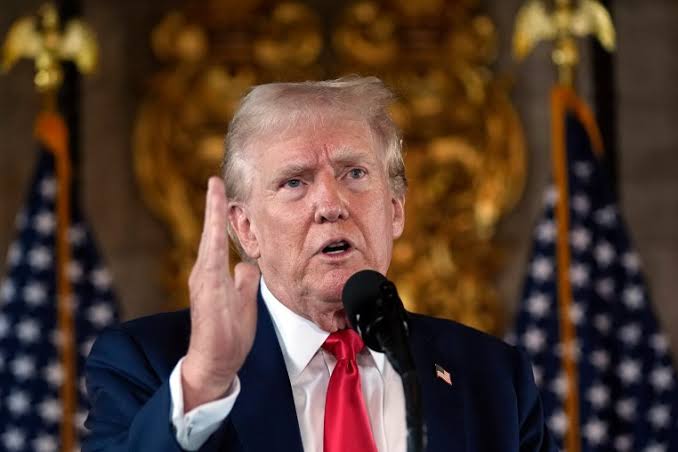
US President Donald Trump has denied that he is considering running for a third presidential term, a move which experts agree is banned under the US Constitution.
“I’ll be an eight-year president, I’ll be a two-term president. I always thought that was very important,” Trump told NBC’s Meet the Press with Kristen Welker in an interview that will air on Sunday.
Trump has previously said that he was “not joking” about wanting to serve a third, or even fourth, term as US president.
He later said his statements were meant to troll the “fake news media.”
His company, The Trump Organization, has been selling “Trump 2028” hats, fuelling armchair speculation that he may seek to remain in office after his second term ends in January 2029.
In the interview, recorded from his residence in Florida, Trump said that he has had many “requests” from people asking that he consider seeking to remain in office.
“So many people want me to do it,” Trump said, just days after celebrating his first 100 days of his second term.
“It’s something that, to the best of my knowledge, you’re not allowed to do. I don’t know if that’s constitutional that they’re not allowing you to do it or anything else,” Trump said.
He added that “there are many people selling the 2028 hat.”
“But this is not something I’m looking to do,” he said, going on to list several Republicans who could take his place, including Vice-President JD Vance and Secretary of State Marco Rubio.
“I think four years is plenty of time to do something really spectacular,” he added.
The Constitution’s 22nd Amendment says that “no person shall be elected to the office of the President more than twice.”
Changing the constitution would require two-thirds approval from both the Senate and the House of Representatives, as well as approval from three-quarters of the country’s state-level governments.
However, some Trump supporters say there is a loophole in the constitution, which has been untested in court.
Asked by NBC whether anyone has approached him with these theories, Trump deflected, answering that “in a capacity of being a big supporter, many people have said different things.”
During the interview, Trump also rejected criticism of his handling of the economy.
“Look, yeah. Everything’s OK,” he said after his tariff plan roiled international economies, leading the US economy to shrink for the first time since 2022.
“I said, this is a transition period. I think we’re going to do fantastically,” he added.
Asked if the US economy may continue to shrink, he responded: “Anything can happen. But I think we’re going to have the greatest economy in the history of our country.” [BBC]
News
VDM: Release my guy now, singer Davido tells EFCC

Popular Nigerian singer, David Adeleke popularly known as Davido has appealed to the EFCC to immediately release his guy VeryDarkMan.
The reason for his arrest is still at the time of writing unknown, and the anti graft agency is yet to acknowledge having him in their custody.
Davido took to his X page to remark on the support displayed by individuals for Verydarkman.
Davido speaks up for Verydarkman, calls for his release
Verydarkman.
He noted that the display of support makes him wants to do more for the masses.
The singer asked the powers that be to free his friend, Verydarkman.
His words …
“Outside all the noise it’s good to see that the good one does actually impacts lives and Pple actually appreciate! The support I’m seeing for VDM everywhere is encouraging.. makes one want to do more for the masses 
Check out reactions…
@bigwizarrdd said: “So you for address this one but you no fit address wetin Spotify do you, we your fans are tired of the fraud you’re doing on Spotify.. FIX UP”
@TheDamiForeign wrote: “I’m giving Gtbank 24hours to release VDM, or else I will step in!”
@Street__lawyer wrote: “@davido
has the fame, power and resources to bring VDM out. We should all remember his a national figure. OON, is not a small name.”
-
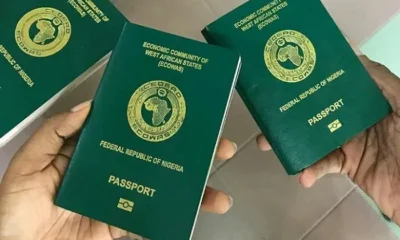
 News15 hours ago
News15 hours agoFive Asian countries Nigerians can visit without a visa
-

 Entertainment15 hours ago
Entertainment15 hours agoOld Prophecy Of Pastor About VeryDarkman Goes Viral After His Arrest
-

 News15 hours ago
News15 hours agoTompolo Launches Door-to-Door Campaign for Tinubu’s 2027 Re-Election!
-
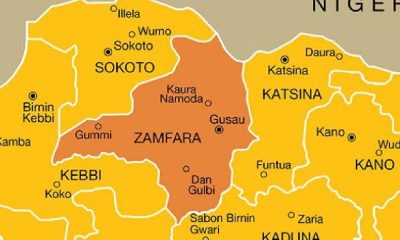
 News15 hours ago
News15 hours agoInsecurity! Bandits abduct 25 female wedding guests
-

 News15 hours ago
News15 hours agoEzekwesili slams political establishment over harassment allegation, defends Natasha
-

 News9 hours ago
News9 hours agoINTERPOL uncovers 150 stolen vehicles from Canada in Nigeria, Gambia, other W.A. countries
-
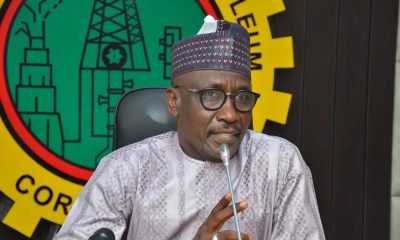
 News15 hours ago
News15 hours agoKyari breaks silence: “I’m not in EFCC custody, I served God, country, not corruption”
-

 News3 hours ago
News3 hours agoFormer Plateau deputy governor is dead





